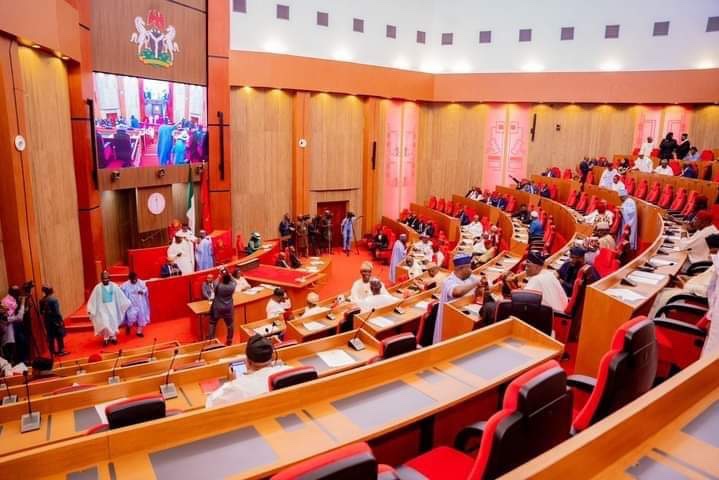
National Assembly Moves to Create 55 New States and 278 Local Governments in Historic Constitutional Amendment Debate

Nigeria’s political landscape may be on the brink of its most dramatic transformation since independence, as the National Assembly begins formal discussions on a constitutional amendment that could lead to the creation of 55 new states and 278 additional local government areas across the country. The proposal, which has sent shockwaves through political and public circles, aims to address long-standing issues of representation, equity, and administrative efficiency that have plagued the federation for decades.
Lawmakers from both the Senate and the House of Representatives reportedly commenced the debate in a joint session this week, signaling what many observers are describing as the most ambitious restructuring agenda in Nigeria’s recent history. The discussions, though still at an early stage, have already triggered intense reactions across political divides, with supporters hailing it as a long-overdue correction of Nigeria’s lopsided federal structure, while critics warn it could deepen ethnic divisions, strain the economy, and further complicate governance.
According to inside sources familiar with the deliberations, the proposal emerged from the constitutional review committee established earlier this year to gather memoranda from across the federation. The committee, led by prominent lawmakers from both chambers, reportedly received over 600 submissions from individuals, groups, and regional bodies calling for state creation, boundary adjustments, and recognition of marginalized areas. After months of public hearings, the committee is said to have consolidated the requests into a comprehensive draft recommending the creation of 55 new states and 278 additional local governments.
If approved, this would increase the number of states in Nigeria from 36 to 91, while local governments would rise from 774 to over 1,050. The implications of such a reform are monumental. It would mean a near-total redrawing of Nigeria’s political map, significant changes in the revenue allocation formula, and a likely expansion of political representation at both state and federal levels. The amendment, if passed, could also set in motion a chain of administrative, judicial, and financial restructuring across all tiers of government.
Speaker of the House of Representatives, Hon. Tajudeen Abbas, who presided over the joint session, emphasized that the discussions were not yet conclusive but acknowledged that the clamor for more states has been one of the most persistent issues raised in every constitutional review since 1999. “Nigeria’s diversity is both a blessing and a challenge,” he said. “We cannot ignore the voices of communities who feel excluded or underrepresented in the current structure. However, any decision we make must be guided by national interest, fiscal responsibility, and long-term stability.”
The Senate President, Godswill Akpabio, echoed a similar sentiment, urging restraint and thorough debate. He described the proposal as “ambitious but not impossible,” adding that “every successful federation must be open to evolution. If this is what will ensure justice, equity, and balanced development, then the National Assembly must give it fair consideration.”
Reactions from across the country have been swift and divided. In the North, some lawmakers and traditional leaders have expressed optimism that the move could bring governance closer to the people and promote rapid development in rural areas. Several northern states are among those projected to be subdivided under the proposal, a move proponents say would give minority ethnic groups greater autonomy and access to resources.
In the South-East, where demands for additional states have been particularly strong, the news has been met with cautious excitement. The region currently has the fewest number of states—five—and has long argued that this imbalance has placed it at a disadvantage in federal representation and revenue distribution. Many residents see this development as a long-awaited opportunity to correct that inequity.
However, not everyone is convinced that creating more states and local governments will solve Nigeria’s problems. Critics have warned that such a large-scale expansion could worsen the already bloated cost of governance, increase dependency on federal allocations, and fuel competition for political power at the expense of national unity.
Prominent economist Dr. Ayo Teriba cautioned that while decentralization is a noble idea, it must be weighed against Nigeria’s economic realities. “We are still struggling to fund 36 states, most of which rely almost entirely on monthly allocations from Abuja. Adding 55 more could be financially unsustainable unless the federal government simultaneously reforms the revenue structure and empowers states to generate their own income,” he noted.
Civil society organizations have also expressed skepticism, arguing that the proposal may be politically motivated. Some activists allege that certain lawmakers are using the idea of state creation to curry favor with constituents ahead of future elections. “This is not the first time we have heard such grand promises during a constitutional review,” said Aisha Yusuf, a constitutional reform advocate. “What Nigerians need is good governance, not more governors, commissioners, and bureaucracies.”
The process of amending Nigeria’s constitution to create new states is a lengthy and complex one. It requires a two-thirds majority vote in both chambers of the National Assembly, approval by at least 24 of the 36 state assemblies, and assent by the President. Even if all these conditions are met, the implementation would still involve a detailed delineation of boundaries, establishment of administrative structures, and a transition plan for civil servants and institutions.
Despite the hurdles, momentum for change appears to be building. Several lawmakers have already submitted motions identifying specific areas that should be upgraded to state status. Among the most discussed are new state proposals such as Aba State (from Abia), Warri State (from Delta), Katagum State (from Bauchi), Ogoja State (from Cross River), Gurara State (from Niger), and New Borno State (from Borno). Others include Anioma, Ijebu, Southern Kaduna, and Amana States, among many others that have been on the list of long-standing demands.
Political analysts say the outcome of this debate could redefine Nigeria’s future. Some argue that, if handled carefully, it could strengthen the federation by reducing feelings of marginalization and ensuring a more even distribution of resources and political power. Others fear it might open old wounds and trigger boundary disputes or ethnic rivalries that could destabilize already fragile regions.
As the debate continues in the coming weeks, all eyes are on the National Assembly and the leadership of both chambers. The proposal, whether approved or rejected, is certain to leave a lasting mark on the nation’s political discourse. For many Nigerians, the question is not just whether the country needs more states, but whether it is ready—economically, politically, and institutionally—to sustain them.
Whatever the outcome, one thing is clear: the conversation about Nigeria’s structure is far from over. The renewed push for state creation has reignited discussions about true federalism, resource control, and local autonomy—issues that have defined the country’s evolution since 1960. Whether this marks the beginning of a new chapter or just another round of political theater will depend on how sincerely lawmakers approach the task before them. For now, the nation watches with cautious anticipation as history once again unfolds in the chambers of the National Assembly.


